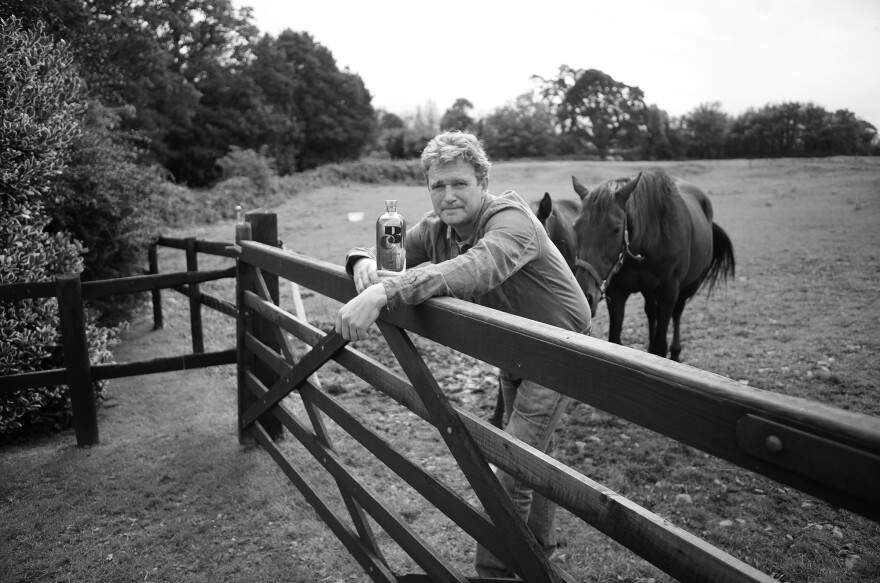Black Cow might be made with milk, but you won't find it in the dairy case. It's on the liquor shelves, because this milk, which comes from a herd of grass-fed cattle in Dorset, England, has been distilled into premium vodka.
Sixth-generation dairy farmer and DIY distiller Jason Barber likes to experiment.
He's made vodka from potatoes and apples, but the results were disastrous. His whey-based spirits were initially udder failures. But the moment he took his first sip of the spirit that became Black Cow pure milk vodka, he knew it would be a hit.
"It tasted so good, we decided to go into production," Barber recalls. The first bottles of Black Cow were released in 2012.
Black Cow's co-founder, Paul Archard, admits that it took time for the bovine booze to catch on.
"We had a lot of people wrinkle their noses when we told them we made milk vodka," he explains.
The hesitation is not surprising: Conventional vodka is made from potatoes or fermented grains like sorghum or wheat.
The sweet, high-fat milk of about 260 head of cattle — Holsteins crossed with Norwegian Red and Fleckvieh — is separated into curds and whey. The curds are used to make award-winning cheddar cheese. The whey, once a waste product used for pig feed, is processed using a special strain of yeast to convert lactose into milk beer that is then distilled into vodka. It takes about 20 liters of milk to produce enough whey to make one liter of vodka.
"Whey doesn't have much commercial value," Archard says. "We're turning it into a luxury product."
Black Cow, which is clear like conventional vodka, is sold in glass bottles to allow customers to see the spirit. And one sip makes it clear that milk vodka tastes nothing like milk.

Black Cow has a smooth flavor and creamy finish. In a dirty martini, the creaminess of the vodka complements the saltiness of the olives; it also makes the vodka a natural spirit for espresso martinis. But Barber prefers drinking Black Cow straight up.
The brand's flavor and versatility have attracted a herd of fans, including the judges at the prestigious San Francisco World Spirits Competition, where the milk vodka won multiple awards, including a gold medal in 2015.
The spirit is milking the demand. The UK distillery produced 120,000 bottles of premium milk vodka in 2016. Black Cow has doubled production annually for the past four years and plans to double it again this year. A 750 ml bottle retails for $40.
Black Cow is sold at independent wine shops and iconic British retailers like Selfridges and Marks & Spencer. In America, distribution is limited to retail stores in California, but it is shipped nationwide through Bounty Hunter Rare Wine & Spirits. Barber and Archard hope to expand to additional brick-and-mortar retailers across the U.S. in 2017.
"We're keen on growth and think we can keep up with demand," Archard says. "Jason has a lot of cousins with cattle."
Jodi Helmer is a North Carolina journalist and beekeeper who frequently writes about food and farming.
Copyright 2021 NPR. To see more, visit https://www.npr.org.





